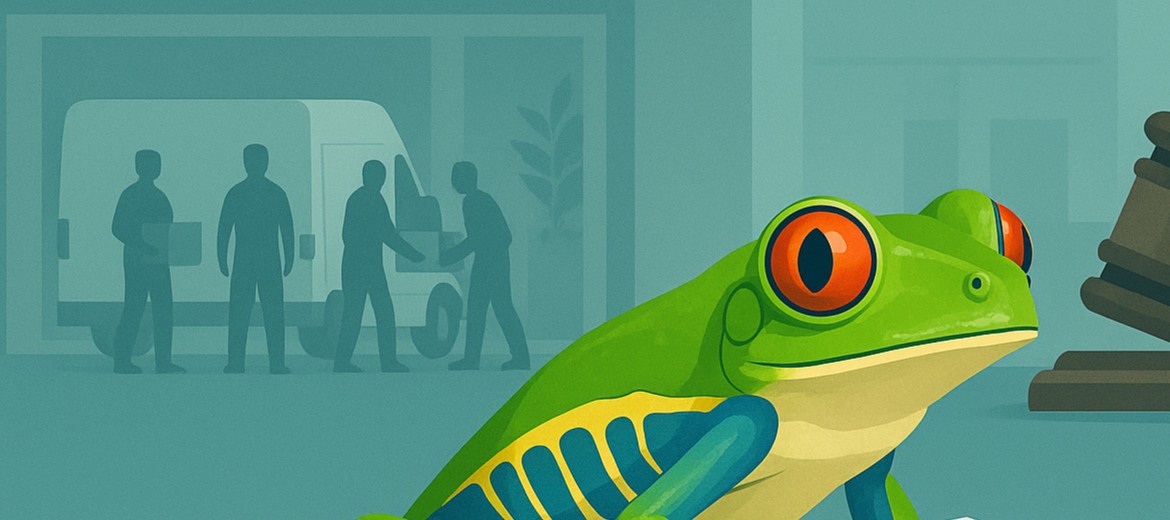In the Dutch debt collection process, seizure is one of the most powerful tools to secure payment. Once a debtor suspects you are taking legal action, there is a significant risk that they will transfer, withdraw, or sell assets. This means that even if your claim is awarded, there may be nothing left to recover.
Seizure – whether prejudgment (conservatory) or post-judgment (executorial) – acts as a legal “freeze” on assets. This may include bank accounts, real estate, vehicles, wages, or even receivables owed to your debtor by third parties.
Prejudgment Seizure: Proactive Protection
Prejudgment seizure is executed before a court ruling. Its purpose is not immediate recovery but to ensure that assets remain available until the court decides on the claim.
Example: you are owed €50,000 by a contractor who completed work for you. Rumours suggest they are about to dissolve their business. By obtaining prejudgment seizure on their business account, you prevent the funds from being transferred to a private account abroad.
Key points:
- Requires leave (permission) from the court.
- Can be arranged within days if the case is well-supported.
- Must be followed by legal proceedings, otherwise the seizure lapses.
Post-judgment Seizure: Enforcing Payment
Post-judgment seizure is applied after you have obtained a judgment, arbitral award, or other enforceable title. Its purpose is to force payment.
Typical examples include:
- Wage garnishment: the employer transfers a portion of the debtor’s salary to you via the bailiff.
- Bank account seizure: blocking and transferring available funds to satisfy the debt.
- Asset seizure: selling vehicles, machinery, or inventory to cover the claim.
When Seizure Makes Sense
Seizure is not automatically suitable for every case. There must be recoverable assets; without them, the measure is ineffective.
Signs that seizure is worth considering:
- The debtor owns visible assets (real estate, vehicles, stock).
- Known bank accounts with regular balances exist.
- The debtor is employed or receives regular payments.
- There are receivables owed to the debtor by third parties (e.g., their own customers).
Step-by-step Process
- Case analysis & strategic advice
We start with a fast but thorough review of your case:
- Is the claim legally valid?
- Is there sufficient evidence?
- Are there indications of recoverable assets?
- Court application
For prejudgment seizure, we request leave from the court. This is done through a concise yet legally strong petition, supported by evidence. - Bailiff execution
Once we have leave or a judgment, the bailiff executes the seizure. This can be done very quickly – often within one to two days. - Follow-up procedure
For prejudgment seizure, you must start legal proceedings within the time limit set by the court. For post-judgment seizure, collection can proceed immediately.
Strategic Considerations
- Timing: seizing too early may incur unnecessary costs; too late may mean the assets are gone.
- Type of seizure: bank seizure is fast and relatively inexpensive; real estate seizure is slower but effective when property is involved.
- Communication strategy: in some cases, it is best not to warn the debtor beforehand to avoid asset transfers.
Legal Framework
- Prejudgment seizure: Articles 700 et seq. Dutch Code of Civil Procedure (Rv).
- Post-judgment seizure: Articles 430 et seq. Dutch Code of Civil Procedure (Rv).
- Statutory interest and costs: Articles 6:119 and 6:96 Dutch Civil Code (BW).
Common Mistakes We Prevent
- Filing a petition with insufficient evidence → court refuses leave.
- Seizing the wrong accounts or incorrectly registered assets.
- Missing the deadline to initiate proceedings after prejudgment seizure.
- Seizing assets protected under the seizure exemption rules (e.g., part of the salary under the garnishment exemption).
Why Choose CW & Partners?
- Speed: from case analysis to seizure within days.
- Practical advice: we do not initiate unnecessary procedures if there is no recovery prospect.
- Full-service: from seizure to final collection, including debtor communication.
Take the first step today to secure your claim
Contact us now via WhatsApp, phone, email, or our online form, and find out how seizure could make the difference in your case.

